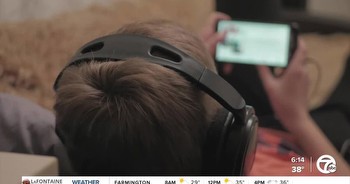Online Gambling Normalizes Betting Among Teens, Raising Concerns For Parents

Fantasy Football leagues and games offering bonus and reward points have ‘normalized’ gambling to a whole new generation, researchers warn.
One in six parents have admitted that they probably wouldn’t know if their teens were gambling online, the new poll has revealed.
Meanwhile, just one in four parents said they have spoken to their kids about the dangers of online betting, despite the majority being concerned about the risks of debt or addiction.
Researchers from the University of Michigan Mott Children’s Hospital conducted a poll across the United States in an attempt to gauge how much of a threat online gambling poses to younger generations.
Their findings have highlighted how accessible betting has become since it moved online and raised concerns about how easily young people can hide what they are doing from their parents.
“While teens and young adults may have a difficult time going into a casino unnoticed, they have easy access to a variety of betting and gambling options online,” Sarah Clark, who led the poll, explained.
“This expanded accessibility has increased exposure to the risks of underage betting, but there is little regulation or conversation around this problem.”
Clark explained that much of online sports betting resembles things such as fantasy football leagues or basketball tournament pools, which many younger sports fans already participate in.
“This means that many online gambling options will seem familiar to teens,” she said.
“They feel like the games kids have been playing on their phones – including features like bonus points and rewards – which makes it harder for teens to appreciate the difference between playing for fun and playing for money.”
While most states in the US restrict online betting to 21 years or older, there are loopholes that adolescents and teens may use to bypass security measures.
There are also ways for kids to hide what they are doing from their parents.
Two-thirds of parents reported that their child had a bank account or debit/credit card in their own name that they could use to register for online betting platforms, something which makes it easier for them to participate without their parents’ knowledge.
“Teens can also easily log in to a platform on their smartphone or other personal device, delete the search history, hide the app, or use it discreetly,” Clark said.
Despite this, more than half of parents said they “would definitely know” if their teen had been betting online.
But Clark argued: “The above points suggest that parents may be underestimating their teens’ interest and savviness.”
One in six parents admitted that they might not be able to tell if their child had been gambling online.
Another danger Clark highlighted via her poll was how frequently kids and teens can be exposed to online gambling.
One-third of parents said that they or another adult in their household participate in online or in-person betting, and nearly two-thirds say they have seen or heard adverts for gambling in the past year.
“Such ads often feature entertainers and sports figures that are popular with teens and young adults, along with enticing bonuses and graphics encouraging continued use,” Clark said.
“Teens may be especially susceptible to these ads, which are often marketed to convey feelings of excitement, endless possibilities, and social credit.”
Clark encouraged parents to talk to their children about online gambling to help them understand the dangers and the ways sites lure people in.
“The ubiquity of gambling ads may offer parents an opportunity to initiate open, productive conversations with their teens about the risks of gambling and its prevalence in their social circles.
“Whether or not the child is actually using betting platforms, ongoing discussions may help them navigate the social pressures and media presence of gambling platforms.”
The national poll also addressed the debate around the legality of gambling.
Two-thirds of parents think the legal age for online betting should be 21, 22 percent say it should be between 18 and 20, and 11 percent feel it should not be legal at any age.
Others support strategies to minimize the risks for young people, such as restricting betting after a certain amount is lost, offering a ‘parent view’ option to monitor accounts, verifying legal age with photo ID, and limiting the amount that can be bet within a certain timeframe.
Produced in association with SWNS Talker































